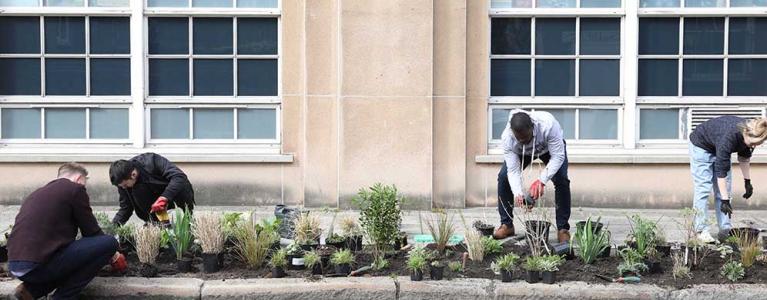
Shirley Rodrigues, Deputy Mayor for Environment and Energy
A year ago, the Mayor, Sadiq Khan, signed the National Park City Foundation’s charter, confirming London as the world’s first National Park City. At that time none of us could have predicted that, one year on, we would be living amid a global pandemic.
The pandemic has shone a spotlight on the importance of a green city. We already knew the numerous benefits that green spaces provide to physical and mental health, but lockdown showed us how they could be a lifeline: they are places to walk, run or exercise, to find spots of tranquillity in the middle of the day, and reunite with friends after too long apart.
In fact, Londoners consider investing in green spaces one of the top three priorities for a green recovery, and around half of Londoners value their local green space more than ever. Nationally, two-thirds of people feel that protecting and enhancing green spaces should be a higher priority for the Government.
Sadly, despite the obvious love we have of London’s great outdoors, not everyone has easy access to green spaces. One in five households in London had no access to a private or shared garden during the COVID-19 lockdown. This split is not just down to geographical lines but social ones too, with those from Black, Asian and Minority Ethnic backgrounds nearly four times less likely to have access to an outdoor space, be it a garden, patio or balcony.
So, today, we’re publishing the recommendations from the London Green Spaces Commission, a group appointed by the Mayor to help support London boroughs transform how parks services are managed and funded. The report highlights the need for substantial long-term investment to maintain and enhance the capital’s existing parks and green spaces.
The report calls for a centre of excellence to be established, which would champion the many benefits of high quality, accessible green spaces, share best practice and promote more inclusive use of parks. Other proposals include implementing a greenspace skills programme to develop the skills and jobs necessary to maintain our parks and green spaces.
Alongside publishing the report, Sadiq is making an additional £650,000 available to support greening projects through his Grow Back Greener fund, on top of the £1.1 million he allocated at the beginning of this year to green urban areas, including those with limited access to green space. Charities and community groups affected by the crisis will be able to apply for funding, helping them retain jobs and support people to develop their skills, while delivering new greening projects in areas of need.
But opportunities to create significant areas of new green space are limited, and providing it is not a statutory requirement of local councils.
The draft London Plan requires new developments to include more greening. This will include - where possible - new areas of publicly accessible open space created where they’re most needed, enabling residents to experience the social and environmental benefits a greener city provides.
We need to ensure parks and green spaces are at the heart of building back better from this crisis – tackling both social inequalities and climate and ecological emergencies, through storing carbon, improving air quality, reducing flood risk and enhancing biodiversity.